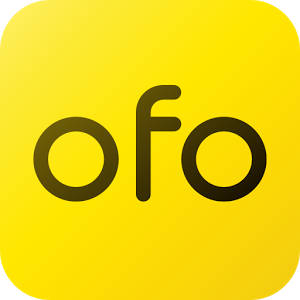APP-y Hour: Four Mobile Apps + One Card You Need When Studying Abroad in Shanghai


After living in Shanghai for three months, I have learned that mobile apps are a huge deal in China. These apps are super convenient and have allowed me to stay within budget while enjoying all the Shanghai has to offer. It is imperative to have working smartphone, especially in a mobile consumerism-driven society like China. Almost every aspect of one’s lifestyle can be associated with, in some form, their cell phone. Before coming to Shanghai, I was worried that I would spend too much money because Shanghai is a big, international city. I imagined it would be expensive to live in such global city. However, after living in Shanghai for several months, I have learned the apps that I must have while living in China. These apps have saved me a lot of money and time!

What?! Is it true that I don’t need to bring a wallet when going out in Shanghai? Well yes! All you need to bring is a smartphone with WeChat pay.
Before I came to Shanghai I did not know it is so convenient to live here. During the first week of the semester, our IFSA-Butler resident staff took us to ICBC bank to set up a bank account. After we set up a bank account, we linked our bank account to our WeChat app. WeChat is a texting app that is similar to What’s App, Line, and Kakao talk. However, WeChat is not just a texting app but has other useful functions such as a Wallet, Didi (calling taxis), mobile top up and renting share bikes.
WeChat has a “Wallet” function that can link to the bank account you set up. WeChat wallet is also known as WeChat Pay. What is WeChat pay? WeChat Pay is an electronic payment method that can be scan QR codes to make transactions simple. WeChat Pay can be used almost everywhere in China. Unlike in America, where people use credit cards, people in China tend to use electronic payments more often. It is not common to use credit cards in China and the usage of cash is declining as well. Even the street food stands use WeChat pay to collect payment.
Alipay

Aside from WeChat Pay, there is also another app called Alipay that Chinese people use for payment. Alipay is basically like WeChat pay but without texting function. This app is directly linked to the bank account by simply adding the bank account information in the app. If you have these two apps, then you don’t have to worry about carrying your wallet around in China. People these days don’t even use cash that often. It is slowly becoming uncommon for people to use cash, especially in the big cities. I would suggest students have both apps on their smartphone because some places do not take WeChat pay but Alipay and some places take WeChat pay but not Alipay.
Ofo and Mobike

Bike sharing is extremely popular in China. In China, the two largest bike share companies are called Ofo and Mobike. These two type of bikes are ubiquitous not only in Shanghai but also throughout other cities in China such as Beijing, Xi’an, and Guangzhou.
How to use share bike
It is really easy! You just need to download the app and pay the deposit. For Ofo, there is a ¥199 RMB deposit which is $30 USD. Mobike has a ¥299 deposit which is $45 USD. Bike share deposit can be refunded after the user decides not to use it anymore. Both Ofo and Mobike ride’s cost is calculated by time. For Ofo, it is ¥0.5 yuan per hour which is $0.076 USD. For Mobike, it is ¥1 yuan per half hour which is $0.15 USD.
However, since I am a student I got three free months of Ofo 3 using my student card from Shanghai University of Finance and Economics. Since the bike share is basically free for most of the time, it is a really good deal for the student.
Metro card
How to get around in a big city like Shanghai? If you have not already heard, Shanghai’s traffic is busy, just like New York’s, especially during rush hour. But don’t worry! Public transportation is really convenient and cheap in Shanghai. I take the bus and metro rides more often than riding a taxi. Not only because it is faster but it is also cheaper. The metro card in Shanghai will cost a ¥20 yuan deposit ($3 USD). If you do not want to keep the metro card after the semester ends, you can sell the metro card back to the metro station and get your ¥20 yuan back. But personally, I would keep it as a souvenir.
How much is bus ride? A one-way bus ride in Shanghai is only ¥2 yuan RMB which is only $0.30 cents in USD.
How much is a metro ride? The one-way metro ride is around ¥3-4 yuan RMB which is $0.40- $0.60 USD. The cost of a metro ride depends on the distance traveled and will be deducted from the balance on your metro card. You have to scan your metro card when you get off at your destination station and the amount will be automatically deducted.
How this has helped me with budgeting
During my first month in Shanghai, I have learned the apps that I must have on my phone. It is important to have these four apps to live in China and they have made my life so much easier while living abroad. If you have these four apps in China, then you can do anything and go anywhere. But first, you have to have a smartphone to download WeChat, Alipay, and share bike apps.
WeChat pay and Alipay are both very convenient. Both apps will send me a notification about how much I spend every time I buy something. In Alipay, there’s a function that can analyzes my average spending. It breaks down spending for me into different categories so I know how I need to budget. I can easily do accounting for my average daily and monthly spending on Alipay. Personally, I prefer to use Alipay because there are more people using this one in Shanghai but it is arguable that some people prefer to use WeChat Pay. However, either app works since most places accept both Alipay and WeChat pay.
Lisa Y. | International Economic and Trade major | The College of New Jersey | International Business in China | Fall 2017